#non-fiction
Text
And, importantly, share some recs!
#poll#tumblr polls#writeblr#bookblr#poetry#short story#comic#graphic novel#screenplay#stageplay#non-fiction#news#journalism#new media#text based game#fanfiction#oh and if you're not sure:#stuff like cookbooks or memoirs or wikipedia all would fall under nonfiction in my opinion#and stuff like homestuck or scp or creepypasta those would all be new media!#and manga of course counts as comics!
3K notes
·
View notes
Text
(You indent
my soul.)
Annabella of Ely, from Poems I-LXVII: “XLIV”
841 notes
·
View notes
Text
Hunger was far worse in the cities of Soviet Ukraine than in any city in the Western world. In 1933 in Soviet Ukraine, a few tens of thousands of city dwellers actually died of starvation. Yet the vast majority of the dead and dying in Soviet Ukraine were peasants, the very people whose labors had brought what bread there was to the cities. The Ukrainian cities lived, just, but the Ukrainian countryside was dying. City dwellers could not fail to notice the destitution of peasants who, contrary to all seeming logic, left the fields in search of food. The train station at Dnipropetrovsk was overrun by starving peasants, too weak even to beg. On a train, Gareth Jones met a peasant who had acquired some bread, only to have it confiscated by the police. “They took my bread away from me,” he repeated over and over again, knowing that he would disappoint his starving family. At the Stalino station, a starving peasant killed himself by jumping in front of a train. That city, the center of industry in southeastern Ukraine, had been founded in imperial times by John Hughes, a Welsh industrialist for whom Gareth Jones’s mother had worked. The city had once been named after Hughes; now it was named after Stalin. (Today it is known as Donetsk.)
Timothy Snyder, Bloodlands: Europe Between Hitler and Stalin
277 notes
·
View notes
Text
Limestone, in particular, has long been a geology of burial–in part because it is so common globally, in part because its erosive tendencies create so many natural crypts into which bodies may be laid, and in part because limestone is itself, geologically speaking, a cemetery. Limestone is usually formed of the compressed bodies of marine organisms–crinoids and coccolithophores, ammonites, belemnites and foraminifera–that died in waters of ancient seas and then settled in their trillions on those seabeds.
Underland: A Deep Time Journey, Robert Macfarlane
5K notes
·
View notes
Text
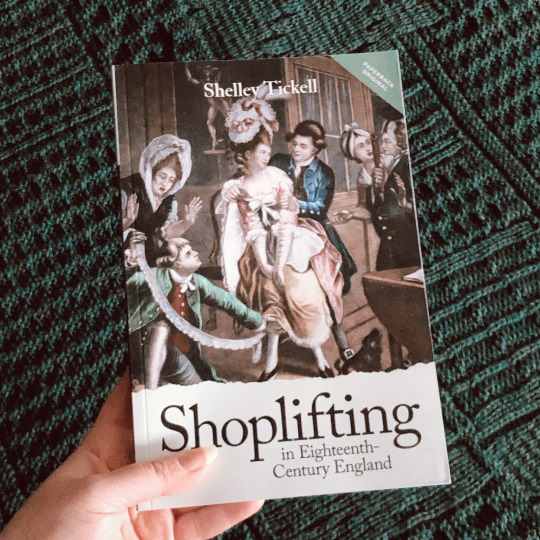
Currently Reading: Shoplifting in Eighteenth-Century England, by Shelley Tickell
I do love an incredibly specific historical non-fiction read. Bonus points for an absolutely scandalous cover image. Oh my. 👀
#am I on an 18th century history kick?#yes yes I am#shoplifting in eighteenth-century england#Shelley tickell#reading#read#book#bookblr#booklr#books#history#nonfiction#non-fiction#currently reading#current read
100 notes
·
View notes
Text
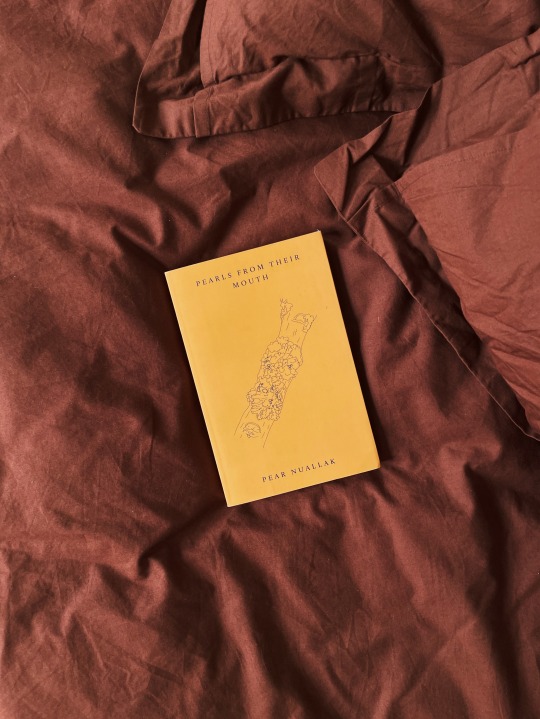
Currently: Pear Nuallak, Pearls from their Mouth. A really unique genre-blending collection which moves seamlessly between folktale, horror, satire and critique at which the centre is an exploration of the complexities of living as diasporic Thai queer artist in modern Britain. This one was a gift from a dear friend and gratefully received.
#studyblr#studygram#studyspo#bookblr#books#book#reading#currently reading#b#read more#non fiction#non-fiction#non fic#booklr#bookstagram#brown#neutral#neutral colours#neutral tones#minimal#yellow#autumn#london#home
219 notes
·
View notes
Text
It was a long time ago. It doesn't matter anymore. And yet I cannot let it go. I cannot let it go.
Sylvia Plath, from a letter to Ruth Tiffanny Beuscher
358 notes
·
View notes
Text


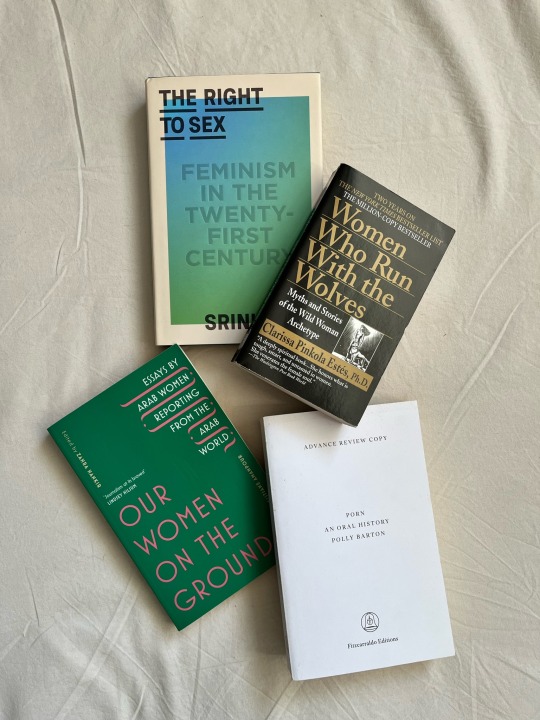

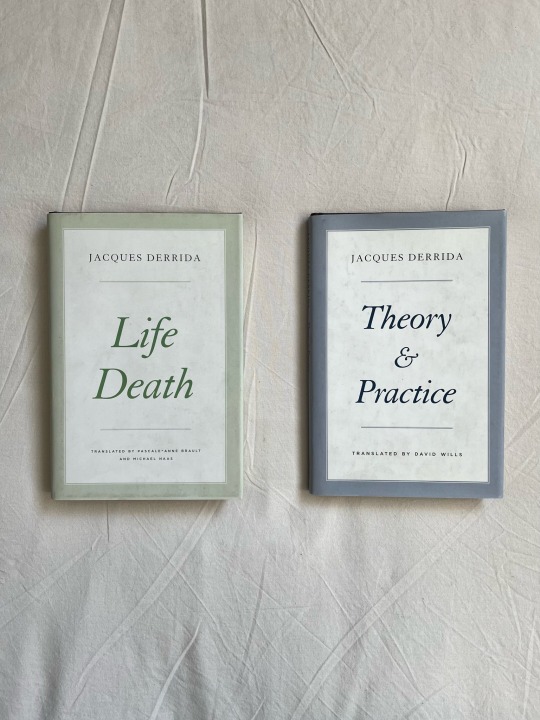


my non-fiction tbr 🎀
more on my ig: (@aristotelian)
95 notes
·
View notes
Text
Juice
This story is true. I have proof, but I cannot show you.
In 2020, I was having a hard time finding my photographic voice after moving back to Baltimore. One night, just before Christmas, I was taking a long exposure of Club Larae in Oliver. An SUV sped into frame and then stopped and the driver threw open his door. I immediately assumed the worst.
The man said are you a photographer. I said yes and stammered something about how cool the club looked lit up at night. He reached into his dashboard and hastily produced a Nikon DSLR and a 4x6 photo album. He started talking to me about making photos, and showed me his collection of boudoir Mrs. Claus photos he had made with women from around the neighborhood over the years. Then he said he would grant me the juice - the power and essence - of photography if I could pass his test.
The test was this: I had to sing along to a song of his choosing. If I could do it, I could take his portrait and gain the Juice. Fail, and I would gain nothing. The only catch was this: I could never share that portrait for as long as I took photos, lest the Juice be revoked. I agreed.
He cued up his CD player, and I started recording a video from my iPhone. And there it was: “P-I-M-P” by G-Unit ft Snoop Dogg. I had worked at Finish Line in 2002-2004. I had belted out this song while stacking boxes in the stockroom my senior year of high school.
The Juice was mine. And it still is.
I found my photographic voice that night. I just can’t show you the proof.
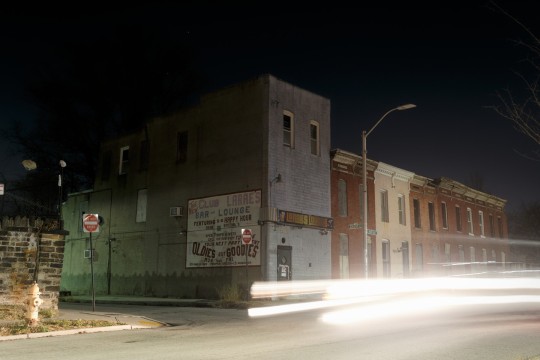
67 notes
·
View notes
Text
literally not a single soul asked
but, i'm going to share anyway. here are my favorite reads this year in no particular order:
Fiction - Novels
Fyodor Dostoevsky's "Crime and Punishment" (Honestly, a masterpiece. I can't wait to devour his entire library. Read it. No notes.)
Leo Tolstoy's "Ana Karenina" (If you're looking for your next existential crisis, here ya go.)
Donna Tartt's "The Secret History" (I know I'm super late reading this and the whole world has already been in love with it for ages, now I finally know why.)
Bram Stoker's "Dracula" (In all fairness, this is on my list every year).
Mary Shelly's "Frankenstein" (This is also always on my list, idec. Shelly's monster may teach you a bit about being human.)
Stephen's Fry's "Mythos" (Honestly, just a super fun read. Really good starting point if you're a budding Hellenic or into ancient Greek mythology, in my opinion. As long as you take it as a starting off point for further research and understand that he has put it together to be entertaining.)
Emily Brontë's "Wuthering Heights" (You will never love a book so much where 97% of the characters and their actions are entirely insufferable. You might wonder why you began, but won't be able to stop and will be grateful that you didn't. Handsomely and meticulously written, as well.)
Elizabeth Kostova's "The Historian" (Historians, anthropologists, romance, and vampires. Chef's kiss.)
Madeline Miller's "Circe" (I JUST LOVE IT OKAY)
Anne Rice's "Interview with the Vampire" (I will never take criticism about this book. No notes, lmao.)
Fiction - Novellas
H.P. Lovecraft's "The Dunwitch Horror"
H.P. Lovecraft's "The Lost City"
H.P. Lovecraft's "The Festival"
Joseph Sheridan Le Fanu's "Carmilla"
Aristophanes' "Lysistrata" (Every moment of this will have you saying what the actual fuck lmao)
Non-Fiction
Viktor Frankl's "A Man's Search For Meaning" (Just saying, this is written by a Holocaust survivor who is also a psychologist. There are graphic depictions of his sufferings. Major trigger warnings and all that - but, I still highly recommend as this is a really life changing book. His message and eloquence touched me in an indescribable way.)
Walter Burkett's "Greek Religion: Archaic and Classical" (Really, I recommend this as required reading to all Hellenics and those interested in ancient Greek religion.)
Dorsey Armstrong's audiobook, "Medieval Myths & Mysteries"
Lacy Collison-Morley's "Greek and Roman Ghost Stories"
Anne Baring and Jules Cashford's "Myth of the Goddess: An Evolution of an Image"
Estelle B. Freedman's "The Essential Feminist Reader"
Alexandra Kollontai's "The Autobiography of a Sexually Emancipated Communist Woman"
Bernadotte Perrin's Translation of Plutarch's "The Parallel Lives" (Juicy Roman drama).
Marcus Aurelius' "Meditations"
Robert Graves' Translation of Suetonius' "The 12 Caesars" (Juicy Roman tea, with a hint of bias though)
#2022#books of 2022#history#ancient greece#ancient rome#fiction#non-fiction#dark academia#book list#favorite books#bookworms of tumblr#h.p. lovecraft#vampires#gothic romance#cosmic horror#literature#reading#books
466 notes
·
View notes
Text

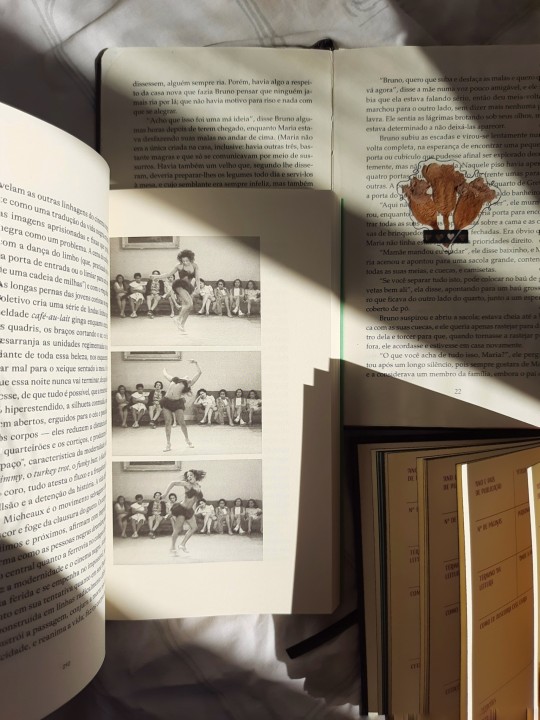
Currently reading Wayward Lives, Beautiful Experiments: Intimate Histories of Riotous Black Girls, Troublesome Women, and Queer Radicals by Saidiya Hartman
#booklr#books#book photography#saidiya hartman#beautiful experiments#non-fiction#read in 2023#the refuge of books
238 notes
·
View notes
Text
10 Ways I Soothe Anxiety
Hello. I have anxiety.
I have anxiety, but I have also managed to somehow keep a pretty good life for myself through it all. Getting out of bed when you have a paralysing fear of the world is not an easy task, but there are a few things I have found that make it that little bit easier, life that little bit smoother. And because we certainly don't gatekeep here, I thought I'd share the ten main ways I soothe anxiety. Basically, ten things I do to switch off and remove myself from my brain.
1. Turn your phone off.
An obvious one, but probably one of the most important. It's insane how clogged a person's brain will get when they spend their day glued to a phone screen. For me, it's not even just social media that sets me off, though that is a massive trigger for me and many other people; it's the phone in general. I could be playing Angry Birds for twenty-four hours and still finish the day feeling gross and anxious and guilty. The screen itself just makes me feel groggy, which in turn leaves me feeling anxious by the time I'm getting into bed that night. There are some days I will wake up, and just turn my phone off completely - usually days when I know I'm going to be at home all day, but still. That extended break from screen time is a life saver.
2. Fidget toys.
Okay, so I may also have autism.
But!!!! Fidget toys are miracle workers for all kinds of mental illnesses and uncomfortable feelings, so don't think you can't invest in some just because you're not on the spectrum. Fidget toys are literally made to soothe anxiety, so get yourself some!! I have one called a Tangle that I keep on me at all times, and I just mess with it in my pocket when I'm in a social situation and I don't know what to do with my hands, or I start feeling a little overwhelmed. It brings my fight or flight right down. I don't know the science behind it, but I honestly don't even care. Give me fidget toys, or give me death.
3. Model making, eg Legos, 3D puzzles.
Legos and 3D puzzles are another thing that has changed the game for me when it comes to anxiety. Like fidget toys, they are the perfect way to keep your hands busy, but they have the added bonus of keeping your mind busy, too. These are, of course, more of a relaxation technique, something you come home to after a stressful day rather than something to eliminate anxiety on the spot, but we'll take what we can get. These also keep you relaxed and distracted for hours, because there is hours worth of work to be put into them. Plus, they're very addictive - once you start on a Lego set, or a puzzle, you don't want to stop until it's finished. I've sat for eleven hours straight doing a Lego set just because I wanted to see the finished product as soon as possible, and during those eleven hours, my anxiety was non-existent. I was just enjoying myself the entire time.
4. Have a nap.
Very self explanatory, and yet controversial???
But genuinely, just go to sleep??? If you're having a gruesome day, and your mind is bullying you, and you're exhausted, just lay down and go to sleep. Fuck what other people say. There is nothing wrong with clocking out from the horrors of the real world for a few hours. As long as you get back up, all refreshed and ready to tackle another day, who cares??
5. Talk to a loved one.
I am very blessed that I can put this on the list. I know this can be a very difficult coping mechanism for a lot of people - trust me, I know. Growing up, my anxiety was my own, and not once did it ever occur to me to share that problem with anyone else. However, after meeting the right people, and understanding that nobody is going to be annoyed about hearing my problems, talking to people became one of the best and most useful coping mechanisms I've got. It can be as simple as sending your best friend a text telling them how you're feeling, or you can go all out and sit your Mum down with a cup of tea and bawl your eyes out. Getting those feelings out will give you a physical relief as well as a mental relief; the weight you've been carrying, a weight you probably don't even notice any more, will be gone in a matter of minutes. I promise you.
6. Exercise.
I know. I was shocked too. All those scientists that told us exercise and moving your body is good for your mental health were right. Bastards.
Just go on a walk. That's what I mean when I say 'exercise.' If you want to go to the gym and lift weights, or run a marathon, you go right ahead. More power to you. But by 'exercise' I just mean. . . move your body. Take the dog on a walk! Walk to the shop instead of driving! Get a bike! The tiniest bit of movement in a day can do wonders, whether we want to admit it or not.
7. Blast happy, sing-in-the-car music.
There's a playlist of Spotify that I highly recommend when it comes to wanting to escape reality and just have a good time. It's literally called Songs to Sing in the Car, and it's one of those playlists Spotify make themselves, just full of songs that you can sing at the top of your lungs, or blast through your headphones, and just have a real good time for a little while. I know it's easy sometimes to just go straight to that playlist full of sad songs that you can relate to in that moment, but try and go for a different approach - go find old bangers that you used to jump around to as a kid. It's a breath of fresh air.
8. Do chores.
Two in one baby!
A good chunk of the time, our anxiety is stemming from our to-do list, even if we're not thinking about it. All around us is evidence of all the unfinished tasks we've got to do, and that can really stress you out. Personally, whenever I'm anxious, I become almost camotose; I will just sit on the sofa and stare at the wall, feeling everything all at once. However, I've found that using this time to do little tasks around the house actually makes me feel better. I'm not saying I go and do a full massive clean; I might push myself just a bit to wash one or two dishes, or the whole sink if I can manage it. I'll hoover the living room floor. I'll go upstairs and put my clothes away. Just tiny jobs, only as much as I can push myself to do. A lot of the time, one job turns into two, and then two turns to three, and soon my house is spotless, and you know what they say - clean space, clear mind!
9. Take up knitting/ crocheting.
This one is pretty self-explanatory. I only discovered this as a coping mechanism when I was suffering from really bad insomnia and I couldn't sleep; I somehow found myself watching YouTube tutorials on knitting, and I was overcome with this intense urge to learn. It was literally one in the morning, and I drove to my Mum's house (dragged my fiance out of bed to come with me, too, sorry babe <3) and grabbed knitting needles and some yarn. I was up knitting for about an hour, and I felt so relaxed that I actually managed to go to sleep! For the first time in days! So not only can you make really cute clothes and nick-nacks and learn a new skill, you're also relaxing that anxious brain of yours for a little bit.
10. Have a good cry.
Yeah. Just this.
#mental health#mental health awareness#mental health support#self care#it girl#social anxiety#anxiety hacks#self care aesthetic#positivity#healing journey#girl journal#recovery#self improvement#glow up#mental wellbeing#words#writeblr#amwriting#non-fiction#recovery tips#older sister advice
67 notes
·
View notes
Quote
You are a dream; I hope I never meet you.
Sylvia Plath, from “The Unabridged Journals of Sylvia Plath”
673 notes
·
View notes
Text
"A modest affair in military terms, the Russian invasion of southern and then southeastern Ukraine involved the most sophisticated propaganda campaign in the history of warfare. The propaganda worked at two level: first, as a direct assault on factuality, denying the obvious, even the war itself; second, as an unconditional proclamation of innocence, denying that Russia could be responsible for any wrong. No war was taking place, and it was thoroughly justified.
When Russia began its invasion of Ukraine on February 24, 2014, President Putin lied with purpose. On February 28 he claimed, “We have no intention of rattling the sabre and sending troops to Crimea.” He had already sent troops to Crimea. At the moment he uttered these words, Russian troops had been marching through Ukrainian sovereign territory for four days. For that matter, the Night Wolves were in Crimea, following Russian soldiers around in a loud display of revving engines, a media stunt to make the Russian presence unmistakable. Even so, Putin chose to mock reporters who noted the basic facts. On March 4, he asserted that Russian soldiers were local Ukrainian citizens who had purchased their uniforms at local stores. “Why don’t you have a look at the post-Soviet states,” Putin proposed. “There are many uniforms there that are similar. You can go to a store and buy any kind of uniform.” (..)
Putin’s direct assault on factuality might be called implausible deniability. By denying what everyone knew, Putin was creating unifying fictions at home and dilemmas in European and American newsrooms. Western journalists are taught to report the facts, and by March 4 the factual evidence that Russia had invaded Ukraine was overwhelming. Russian and Ukrainian journalists had filmed Russian soldiers marching through Crimea. Ukrainians were already calling Russian special forces “little green men,” a joking suggestion that the soldiers in their unmarked uniforms must have come from outer space. The soldiers could not speak Ukrainian; local Ukrainians were also quick to notice Russian slang particular to Russian cities and not used in Ukraine. As the reporter Ekaterina Sergatskova pointed out, “the little green men’ do not conceal that they are from Russia.”
Western journalists are also taught to report various interpretations of the facts. The adage that there are two sides to a story makes sense when those who represent each side accept the factuality of the world and interpret the same set of facts. Putin’s strategy of implausible deniability exploited this convention while destroying its basis. He positioned himself as a side of the story while mocking factuality. “I am lying to you openly and we both know it” is not a side of the story. It is a trap.
Western editors, although they had the reports of the Russian invasion on their desks in the late days of February and the early days of March 2014, chose to feature Putin’s exuberant denials. And so the narrative of the Russian invasion of Ukraine shifted in a subtle but profound way: it was not about what was happening to Ukrainians, but about what the Russian president chose to say about Ukraine. A real war became reality television, with Putin as the hero. Much of the press accepted its supporting role in the drama. Even as Western editors became more critical over time, their criticism was framed as their own doubts about Kremlin claims. When Putin later admitted that Russia had indeed invaded Ukraine, this only proved that the Western press had been a player in his show.
After implausible deniability, Russia’s second propaganda strategy was the proclamation of innocence. The invasion was to be understood not as a stronger country attacking a weaker neighbor at a moment of extreme vulnerability, but as the righteous rebellion of an oppressed people against an overpowering global conspiracy. As Putin said on March 4: “I sometimes get the feeling that across the huge puddle, in America, people sit in a lab and conduct experiments, as if with rats, without actually understanding the consequences of what they are doing.” The war was not taking place; but were it taking place, America was to be blamed; and since America was a superpower, all was permitted in response to its omnipotent malice. If Russia had invaded, which it was somehow both doing and not doing, Russians would be justified in whatever they were doing and not doing."
Timothy Snyder, The Road To Unfreedom: Russia, Europe, America
#Timothy Snyder#non-fiction#Ukraine#Russia#Vladimir Putin#propaganda#journalism#btw a similar thing was with blowing up Kakhovka dam#Western press was like: Ukraine and Russia are blaming each other#who that might be who blew the damb?#facepalm#the war has been going for 10 years now but they have learned so little
39 notes
·
View notes
Text

I just finished this, and it was phenomenal.
39 notes
·
View notes
Text

I've found my first review-worthy book of the year!
Eve by Cat Bohannon is a female-focused history of human evolution and a synthesis of pretty much every research field as it pertains to women. It's also readable and witty and one of those rare science books where I actively had to stop myself reading because I had to, say, go to bed.
Simply taking all the scientific research and turning it into layperson language would get this book praise. (You should see how many studies get cited.) Taking that research, relating it readably, and then drawing overarching conclusions? For instance, studies on how and when cis-female bodies produce sex hormones, and studies on how sex hormones affect neurology, and then saying something like, "this is why pregnant people are moodier"? That takes the whole thing to another level.
And it covers so much! It starts with the first mammals, moves through early primates and hominins, draws in studies of mice and apes and history and economics, talks about language and aging, and ends with the evolution of social relationships and thoughts on the future. There's a lot that I found enlightening, engaging, and validating, and a lot of moments where she reframed something and changed my thinking. And she's very comfortable calling out cultures and researchers and ways of thinking (and ducks and chimpanzees) for how they treat their species.
But like all books, it isn't perfect, though with such a subject, it probably couldn't be. For instance, because Bohannon is focusing so much on the average (i.e., cis-perisex) female body, trans and intersex folks don't come up much, though she's very clear that trans women are women, trans men are men, and intersex conditions are not problems. (Also, I'm sure the lack of info correlates strongly to a lack of studies, but she only mentions this a time or two.) *
More importantly, though, given that this is science writing and one expects scientists and writers to back up their claims, she doesn't always. Most of the time when she doesn't, it's clearly speculation or synthesis or some form of "if X, then Y" but sometimes it's less clear. I keep going back here to her statement that the first hominin culture with midwifery had exclusively female midwives. I would absolutely buy this, especially based on some of her points later in the chapter, but she never says why there couldn't have been the odd male. After all, later in the book she also mentions how men-who-help-women could have shifted the dynamics of the band/tribe/group closer to what we see today and that this probably started around the same time. To be fair, jumps like this are fairly rare but they do make me question if there were others I missed or more statements I should have questioned.
So basically, I'm saying this is an important book, and a good book, and a book that should be read by a lot of people, but also a book to read a little critically. Bohannon makes a lot of really great points and relates a lot of intriguing facts and tells some compelling stories about who we are and how we got here. She's done good work with this book and should be proud of it. But also, there might be some spots where her arguments could be tighter.
*she also prioritizes words like "she" and "mother" and "woman" over words like "parent" and "person", which I can see not being great for some trans people even though I understand that she's trying to upend the notion that the average human is a cis male and show that female/afab bodies are pretty important.
#booklr#bookblr#adult booklr#science writing#book reviews#human evolution#hominins#cat bohannon#eve#my photos#read in 2024#non-fiction#book recommendations
25 notes
·
View notes